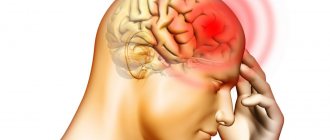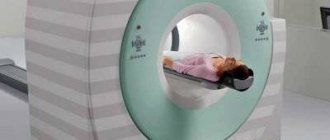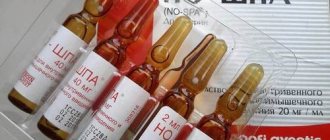Read in the article:
- What is Phenazepam
- Indications and contraindications for taking Phenazepam
- Can phenazepam be taken with alcohol?
- Is it possible to take Phenazepam for a hangover?
- First aid
- How to recover from addiction?
Phenazepam is prescribed not only for anxiety, panic attacks, sleep disorders, emotional tension, but also as part of complex therapy for alcohol withdrawal syndrome. The drug is considered a powerful tranquilizer, which when mixed with alcohol enhances its effect several times. And it doesn’t matter if you take the medicine with beer or stronger alcohol. What consequences threaten the body when taken together and how to cope with them, read the article.
What is Phenazepam
It is a tranquilizer with a muscle relaxant effect. It has a serious effect on the psyche, so it is sold only with a doctor's prescription. Taken in the form of tablets or white suspension.
Phenazepam helps to relax, reduce feelings of fear, and eliminate irritability. In narcology, it is used to relieve alcohol withdrawal as a multi-day therapy, but it is absolutely not suitable for treating a regular hangover. This remedy is one of the most widely known in Russia.
The dangers of pharmaceutical drugs
The peculiarity of pharmaceutical drugs is that people often cannot understand: a medicine, if used in non-medical doses, becomes a poison. To this day, many of those who are “involved” in pharmaceutical drugs retain the illusion that approved drugs cannot harm the body, but this is completely inconsistent with reality.
All medications must be taken strictly as prescribed by the doctor, according to the instructions. But even so, some of them can be addictive in sensitive people. And this is especially true for sleeping pills, tranquilizers, painkillers, that is, those drugs that affect the subtle processes of the psyche.
Because these drugs are legal, they are easy to buy and usually cost less than drugs. This is another reason for the massive spread of pharmacy drug addiction.
Indications and contraindications for taking Phenazepam
The drug is prescribed for the treatment of phobias, panic attacks, hypochondria, depression or severe excitability. It is allowed to prescribe medicine to patients over 18 years of age. If you take it without a doctor's indication, then addiction develops.
Phenazepam is contraindicated in cases of pathology of the cardiovascular system, during pregnancy and lactation, in shock or mental illness. The drug is prescribed with caution to patients who have a predisposition to drug dependence.
Consequences of use
With chronic drug use , sleep disturbances, loss of appetite, depressive disorders, psychosis, panic attacks and obsessive fear, increased anxiety, irritability, hallucinations and delusions, and mental disorders occur.
Physical dependence on Phenazepam leads to withdrawal syndrome, overdose, and drug withdrawal. Psychological dependence leads to mental disorders, depression, and a depressed emotional state. The consequences of using Phenazepam are extensive and affect all areas of personal development.
Can phenazepam be taken with alcohol?
The instructions for the drug state that it is contraindicated to use it with alcohol. If you ignore this fact and ignore the warnings of doctors, then here are the consequences that await a person:
1.Poisoning
When alcohol and Phenazepam mix in the blood, dizziness, nausea, headache and fog occur. In some cases, hallucinations occur.
2.Addiction
Taking a drug to enhance the effects of alcohol and accelerate the onset of euphoria, a person can no longer control how much he drank. This leads to addiction to both alcohol and medications.
3.Allergies
It is impossible to guess how the addict’s body will react to such a “cocktail”; everyone’s reactions are individual. There have been cases of sudden jumps in blood pressure, difficulty breathing, and high body temperature.
4.Loss of consciousness
This symptom is characteristic of an overdose of phenazepam mixed with alcohol. If the dose was too large, then the person may fall into a coma and then the chances that he will recover tend to zero.
5.Overdose
If taking a large dose of the drug does not cause loss of consciousness, then negative consequences for the psyche and health develop. For example, a person ceases to control himself and becomes fearless, which threatens him with rash and dangerous actions. The appearance of delusional ideas and loss of contact with reality is possible.
6.Lethal dose
It is impossible to predict how the human body will react in each case, and therefore it is difficult to establish which combination and in what proportions will be fatal. It depends on the state of health and immune system, the presence of diseases of internal organs.
Action of Phenozepam
The effect of Phenazepam when consumed in large quantities is a decrease in arousal, relaxation, euphoria, relief of tension and anxiety, and drowsiness. The sedative effect of Phenazepam is dangerous. It lies in the fact that when using the drug in large quantities, a person may lose consciousness and, if he is not helped, death will occur.
This is due to the fact that under the influence of Phenazepam, muscles relax, blood pressure decreases, and body temperature drops. A person is in a borderline state between sleep and wakefulness. When the effect of the drug wears off, the person experiences depression, depression, and loss of strength.
First aid
If a person takes Phenazepam with alcohol, then you need to immediately call an ambulance, because it is impossible to predict the consequences for the body and psychological state of a person. Before the doctor arrives:
- do a gastric lavage: give the person who consumed at least 6 glasses of water with soda, induce vomiting.
- give a sorbent: polysorb, smecta, polyphepan or activated carbon will do, this will prevent loss of consciousness;
- monitor the condition: do not leave the person alone; if he has lost consciousness, then lay him on his side and fix his tongue so that he does not swallow it during attacks of vomiting.
Overdose
Phenazepam is a tranquilizer . In case of an overdose, a person experiences symptoms similar to alcohol poisoning: nausea, vomiting, dizziness, headache, tremor. When tolerance to a drug increases, a person has a desire to achieve a euphoric state by using an increased dosage of the drug.
First aid for an overdose is to call a narcologist at home to remove toxic substances from the body. After stabilizing the physical condition, doctors recommend undergoing a course of treatment for psychological dependence.
How to recover from addiction?
If a person is addicted to drinking alcohol with Phenazepam, then only comprehensive treatment can help. And the sooner it begins, the fewer irreversible consequences a person’s physical and psychological health will receive. The risk that one day the addict will not calculate the dose and it will be too late to help will also disappear.
Do your loved ones need help treating alcohol addiction? Sign up for a free consultation by calling the AlkoZdrav help center hotline: 8-800-775-32-63 . Specialists will answer your questions, select an effective treatment plan and accompany you throughout the entire program.
We guarantee results if all our recommendations are followed.
Impact on the body
Phenazepam has a strong inhibitory effect on the functions of nerve impulses in the central nervous system. Doctors prescribe this drug for a period of no more than one month, as it is quickly addictive. Even after taking the drug for 30 days, its withdrawal causes a slight deterioration in well-being. It can be stopped with the help of sedatives.
Dependence on taking Phenazepam leads to:
- haphazard use;
- exceeding daily and single doses;
- a feeling of complete or partial dissatisfaction;
- predisposition transmitted by genes;
- the existence of clear examples of the use of medications for pleasure;
- combination of tablets with alcohol.
All this causes persistent addiction followed by withdrawal symptoms.
Description of the tranquilizer
"Phenazepam" is a tranquilizer from the group of benzodiazepines. This is a pretty powerful drug. In terms of the strength of its effect on the body, it surpasses many other similar drugs.
The active component of the tranquilizer (phenazepam) binds to special benzodiazepine receptors in the body. This promotes better absorption of chlorine ions by nerve cells and a decrease in neuron excitability.
A person’s anxiety and irritability disappear, and mental calm occurs. Sleep becomes deep and sound. In addition, the drug relaxes muscles and eliminates cramps.
When should an antidote not be administered?
There are cases when the administration of the antidote "Phenazepam" is contraindicated. Flumazenil is not used if the patient is taking tranquilizers for epilepsy or high intracranial pressure. Otherwise, blocking benzodiazepine receptors can lead to seizures or severe cerebral hypertension.
Combined poisoning with Phenazepam and tricyclic antidepressants (for example, Amitriptyline) often occurs. In this case, it is also impossible to administer an antidote; this may worsen the patient’s condition.
How to treat overdose in such cases? The patient is given forced diuresis to remove the tranquilizer metabolites through the kidneys. The patient is given a drip with the diuretic drug Furosemide. In mild cases, a diuretic is prescribed orally.
Other drugs
As already mentioned, Flumazenil is the only benzodiazepine receptor blocker. Other drugs are prescribed only for symptomatic treatment of overdose. They are not antidotes for tranquilizers. Let's look at these tools in more detail:
- "Mesocarb". This remedy is a strong psychostimulant. It helps reduce the unwanted effects of tranquilizers. This drug is prescribed to correct residual effects of overdose (lethargy, asthenia, drowsiness). However, if taken for a long time, this drug can cause serious dependence.
- Analeptics (“Cordiamin”, “Caffeine”, “Bemegrid”). These drugs stimulate breathing and heart muscle function. They are administered to maintain vital body functions.
- Emetic drugs (Digoxin, Apomorphine, Emetine). Such drugs are effective only in the first hours after an overdose. They provoke the gag reflex and remove toxins from the stomach.
Causes of poisoning
On average, tranquilizer doses from 0.5 to 5 mg are used to treat neuropsychic pathologies. In severe cases, it is allowed to take 10 mg of medication per day. However, this dose is taken in several doses.
Acute poisoning occurs if a person takes more than 10 mg of this medicine at a time. When taking about 1 g of the drug, death occurs.
What are the causes of an overdose of Phenazepam tablets? Typically, patients exceed the permissible amount of medication in the following cases:
- With tolerance to the drug. Over time, the body adapts to the tranquilizer. The previous number of tablets ceases to have the desired effect. The patient increases the dose of the drug, and as a result, poisoning occurs.
- In the formation of mental and physical dependence. Long-term use of the drug can lead to addiction. An unhealthy addiction to the drug is formed. In order to achieve maximum sedative effect, a person begins to take more and more Phenazepam tablets.
- With withdrawal syndrome. Abrupt cessation of taking a tranquilizer leads to a deterioration in health. For this reason, doctors recommend gradually reducing the dose of the drug. Drug withdrawal syndrome is accompanied by unpleasant sensations: fatigue, weakness, insomnia, anxiety, and decreased mood. To get rid of such symptoms, patients often take excessive amounts of pills.
- When taking alcohol together. Tranquilizers and alcohol are absolutely incompatible. Ethanol potentiates the effect of the tablets, which can lead to respiratory and cardiac depression. Even therapeutic doses of the drug can become dangerous if the patient allows himself to drink alcohol during treatment.
- When attempting suicide. Psychiatrists prescribe this medicine with caution for severe depression. The drug may increase suicidal tendencies in such patients.
Often, small children are accidentally poisoned with tranquilizers. Therefore, the packaging with the drug should be kept in a place inaccessible to the child.
It is important to remember that an overdose can occur not only with a single dose of a large number of tablets. If a person for a long time even slightly exceeds the permissible dose of the drug, chronic intoxication may occur.
How to administer the antidote
Flumazenil is available in powder form. It is intended for intravenous administration. In case of poisoning, 0.3 mg of the drug is diluted in saline and the patient is given a drip. If necessary, the dosage is increased, carefully monitoring the patient's condition.
Is it possible to administer an antidote at home before the ambulance arrives? Doctors do not recommend doing this. It is not always the case that the person providing first aid is fluent in the technique of intravenous injections. Inept administration of the drug can cause harm to the victim.
In addition, it is not always possible to establish what exactly the patient was poisoned with, especially if the person is unconscious. Flumazenil has contraindications that only a doctor can take into account. Therefore, using the Phenazepam antidote at home is extremely undesirable. It can only be administered in a hospital under the supervision of a specialist.











